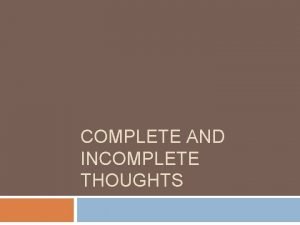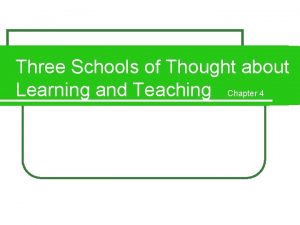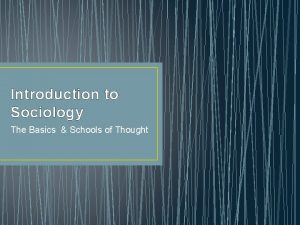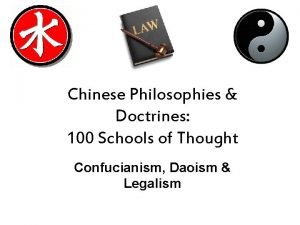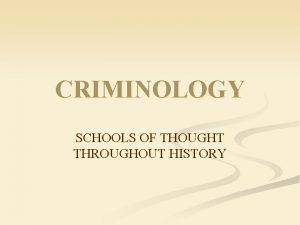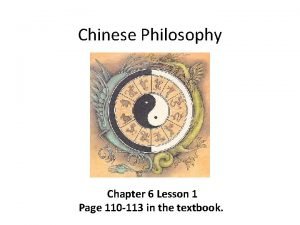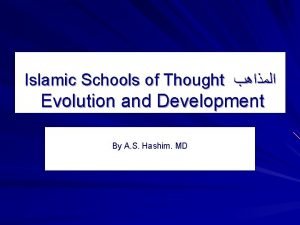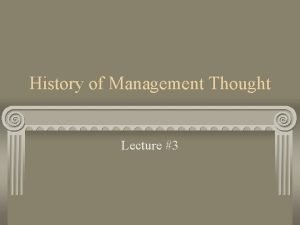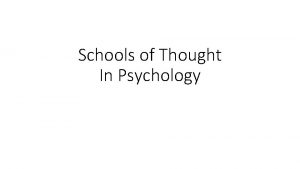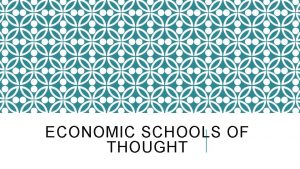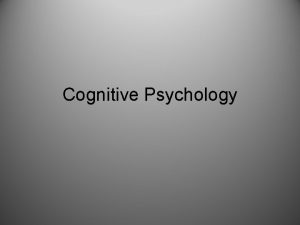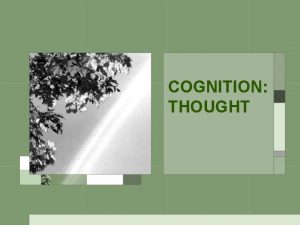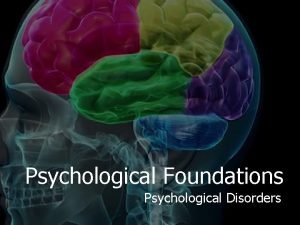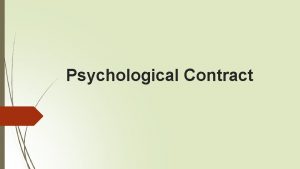Psychological Schools of Thought Cognitive Psychology Cognitive Psychology








- Slides: 8

Psychological Schools of Thought Cognitive Psychology

Cognitive Psychology �COGNITION refers to the mental processes in the brain. �Cognitive Psychology is the study and application of how the brain learns. �Cognitive Psychologists believe in & consider mental states, such as beliefs, motivations, and desires

Albert Bandura 1925 �Although Bandura’s work is sometimes placed under behaviourism, he considered himself a cognitive psychologist �Recall: Bandura believes people learn behaviour by watching & then imitating others �His ideas are officially known as social learning theory & theory of self-efficacy � These theories were tested during the Bobo doll experiment in 1961

Recall: The Bobo Doll Experiment � 1 st children watched a video �In it, an adult hit/punched/kicked or struck a rubber Bobo w/ a mallet � 2 nd children, one at a time, were placed in the same room (alone) to interact with the doll �Other aggressive & non-aggressive toys were provided �Bandura discovered that aggression was not let out by watching the adult (catharsis) �Children behaved just as aggressively �Most disturbingly, children created new ways to act violently towards the doll.

The Bobo Doll Experiment �Children in the control group did not view the video �Therefore were not exposed to aggressive modelling �They were less likely to behave aggressively toward the doll �Were not as interested in the other aggressive toys in the room, such as the guns

Elizabeth Loftus 1944 - �Loftus conducted extensive research on the misinformation effect and the nature of false memories �The Lost-in-the-Mall Experiment �Participants read several stories of real events that had occurred during their childhood, as well as 1 fictional story where they were lost in the mall at the age of 5 � 29% of participants remembered at least part of the false event � 25% of those continued to remember more details of the false event follow-up interviews (Loftus & Pickerell, 1995)

Lost-in-the-Mall Experiment Importance �Important b/c �It shows that false memories can be planted in the mind’s of ppe �Proves that ppl can be led to remember their past in various ways & even “remember” a past that didn’t happen �Loftus has been used as an expert witness in many criminal cases to disprove/discredit eye-witnesses

False Memories in the Visual Age � Gerald Echterhoff researches false memories created by observation � Key findings - 25% of ppl adapt he memory of seeing something done on TV & later, believing they had done it � Participants were far more likely to “remember” actions they had watched compared to those read, � Participants had false memories even when they were warned that this might happen & that they were studying false memories

